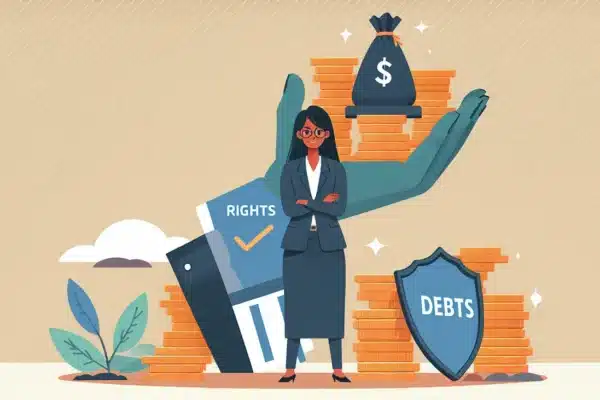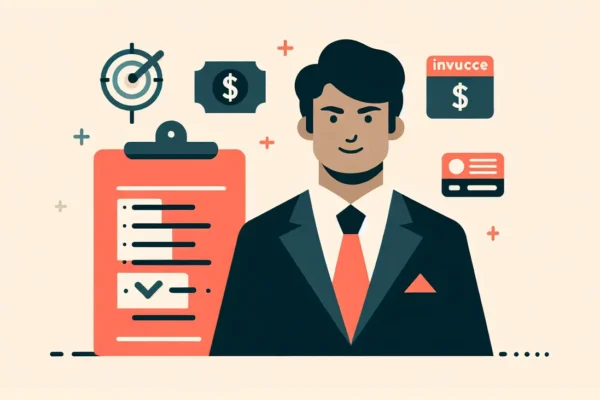Introduction to Late Invoice Payments
Late invoice payments can be a real headache. They’re more than just annoying; they mess with your cash flow, causing all sorts of problems for your business. So, what exactly are late invoice payments? It’s when your clients or customers don’t pay their bills on time. This could be because they forgot, they’re facing their own financial troubles, or they’re not satisfied with your service or product.
Whatever the reason, it throws a wrench into your financial planning. In essence, managing late payments is about staying on top of your invoices and communicating clearly and promptly with your clients.
Remember, handling late payments is a common challenge, and it’s manageable with the right approach.
The Impact of Late Invoice Payments on Your Business
When clients don’t pay their invoices on time, it hits your business hard. Think about the cash flow — it’s the lifeblood of your company. With delayed payments, cash flow gets strangled. This means money you count on to cover expenses, pay your team, or invest in growth opportunities, isn’t there when you need it. It’s not just about the annoyance of waiting; it’s about the real strain on your resources.
And there’s the domino effect. Without sufficient cash, you might delay paying your own bills, which can harm your business relationships and credit score. Plus, chasing payments costs you time and money. The more time you spend emailing and calling clients to settle invoices, the less time you have for other critical tasks. This isn’t just inefficient — it’s a distraction from growing your business.
Finally, let’s not overlook the emotional toll. Constantly worrying about when the money will come in can be stressful and demoralising for you and your team. Anxiety over finances affects morale and can even make you doubt the viability of your business.
In short, late invoice payments can create a vicious cycle of financial stress, operational inefficiencies, and emotional strain — all of which can hinder your business’s potential.
How to Create a Systematic Approach for Managing Invoice Payment
Having a systematic approach to handling late invoice payments is crucial for the health of your business. It minimises stress and keeps cash flowing smoothly.
Start by setting clear payment terms from the get-go. This includes specifying due dates and acceptable payment methods. It’s a game-changer.
Next up, automate reminders. Tools are out there that can send out polite reminder emails before and after a payment is due. It’s about staying on top of mind without spending all day chasing payments.
When an invoice does go overdue, be proactive but keep it friendly. Reach out with a gentle reminder and ask if there’s any issue preventing payment. Sometimes, it’s just a hiccup that can be quickly resolved.
For the tough cases, establish a graduated response. This could mean sending a series of increasingly firm reminders, or eventually, turning to a specialist recovery team. But remember, the goal is to maintain a positive relationship whenever possible.
Most importantly, keep detailed records of all communication and payments. If things go south, having detailed records can be a lifesaver. This systematic approach isn’t just about getting paid; it’s about creating a professional and efficient atmosphere around your billing process.
With these steps, you nudge late payers in the right direction while keeping your business’s finances healthy.
Preventive Measures to Avoid Late Invoice Payments
Vetting and Checking Prospective Clients:
To enhance your overall Accounts receivable process and reduce the likelihood of late payments, it’s beneficial to vet and check your prospective clients before entering into any agreements with them.
By conducting checks, verifying their financial stability, and assessing their payment history, you can mitigate the risk of working with clients who have a track record of delayed payments or financial instability. This proactive approach allows you to make informed decisions when engaging with new clients, ensuring smoother transactions and a more reliable cash flow for your business.
To stop late invoice payments before they even start, here’s what you need to do.
First off, be clear and precise in your invoices. This means breaking down services, costs, and including a payment deadline right there in plain sight. Then, set up a process to follow up. Right after you send the invoice, send a quick email confirming it’s been received. A week before the deadline, remind your client politely about the upcoming payment.
If you can, offer various payment methods. Making it easy to pay means fewer excuses for delays.
Lastly, consider charging a late fee – in the UK there are statutory laws that set this out clearly, and it applies to all B2B businesses.
Make sure it’s stated clearly on the invoice. People usually try to avoid extra charges, so this can nudge them to pay on time. Stick to these steps, and you’ll likely see those late payments drop.
Setting Clear Payment Terms and Conditions
Setting clear payment terms and conditions is where you lay the groundwork for smooth transactions. This is the no-nonsense approach to getting paid on time.
Be crystal clear about when you expect to be paid. Do you want payment on delivery, within 30 days, or maybe 60 days after invoicing? Spell it out.
Detail the forms of payment you accept. Are you all about credit cards, direct bank transfers, or even cheques? Make it known.
Also, consider including any late payment fees you’ll apply, because sometimes the fear of extra charges motivates prompt payment. Mention any discounts for early payments too; it’s a nice carrot to offer.
Clear expectations from the start can save you a ton of headaches later. Stick to this, and you’re setting the stage for getting what’s yours without a fuss.
Using Technology to Streamline Invoice Payment Processes
In today’s fast-paced world, waiting for late invoice payments can slow down your business. Technology is a game-changer. By using the right tools, you can make the process smoother and faster.
First off, start with invoicing software. This isn’t just about sending out bills. These systems can automate reminders for your clients, meaning you don’t have to chase them down. It’s like having a virtual assistant that keeps an eye on due dates and nudges customers for you.
Next, consider setting up digital payment options. People love convenience. If they can pay with a click from their smartphone, you’re likely to get your money faster. Whether it’s through PayPal, direct bank transfers, or even cryptocurrencies, offering more options can shorten the waiting time.
Lastly, integrate your systems. When your invoicing software talks to your accounting system and your bank, you stay on top of your finances without the manual hassle. Think of it as setting up a domino effect where one action completes the next.
By leveraging technology in these ways, you’re not just waiting for money to come in; you’re actively pulling it towards you.
Legal Actions to Consider for Chronic Late Payments
If you’re dealing with chronic late payments, legal action might seem like a big step. Still, it can be necessary to protect your business’s cash flow.
Sending a formal demand letter can sometimes do the trick. It serves as a serious nudge reminding your client of their obligations. If that doesn’t work, small claims court is the next step. For larger sums, though, hiring a lawyer and pursuing a lawsuit might be your best route.
Remember, legal action is a big step and can affect business relationships. It’s worth trying to communicate and solve issues amicably before heading down this path.
Benefits of Involving a Specialist Debt Recovery Team
Managing the process through a specialist debt recovery team can save you time and help you secure preferential rates with lawyers when legal action is necessary. The involvement of a third party often leads to quicker results, making the benefits significant.
A dedicated team will know the process inside out, having dealt with thousands of late paying businesses before, meaning they are best equipped to know what steps will get the money back into your account quickest.
Comparisons can be made across any service, where instructing a professional to be engaged can greatly increase your chances of a compliant, fast and improved outcome.
Conclusion: Maintaining Healthy Cash Flow and Customer Relations
To keep your business running smoothly, it’s essential to handle late invoice payments smartly while keeping good relationships with your customers. Keep communication open and clear. Don’t shy away from contacting a customer about a late payment. Often, a simple reminder is all it takes. But when doing so, remain professional and understanding. Sometimes, issues are genuine, and being unnecessarily harsh could harm your relationship.
Offering payment plans might just save the day for both of you. It shows empathy and keeps money flowing into your business. Always document these agreements well to avoid future misunderstandings. Being proactive can also help; consider sending invoices promptly and following up before the due date as a reminder.
In cases where late payments become a pattern or communication fails, it might be time to revisit your payment terms with that customer or enlist the help of a specialist recovery team.
Remember, preserving a healthy cash flow is crucial, but how you treat your customers during tough times can define your business reputation and its future success. So, aim for a balance between firmness and kindness.







